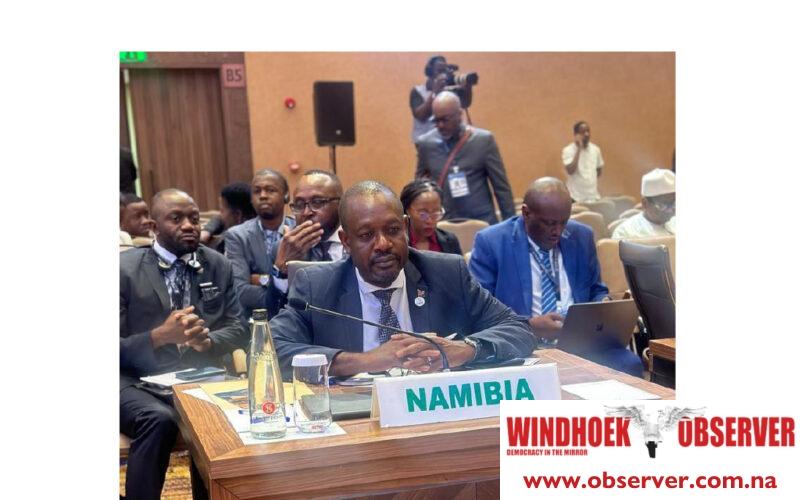Niël Terblanché
The implementation of the CAADP Strategy and Action Plan for 2026-2035 is poised to play a transformative role in achieving a healthy and prosperous Africa.
In this regard, the African Union (AU) convened an Extraordinary Summit in Kampala, Uganda, under the theme “Sustainable and Resilient Agrifood Systems for a Healthy and Prosperous Africa.”
Peya Mushelenga, the minister of international relations and cooperation led the delegation which actively participated in these vital discussions from Thursday to Saturday.
The summit focused on the Comprehensive Africa Agriculture Development Programme (CAADP) Strategy and Action Plan for 2026-2035.
The Ministry of International Relations and Cooperation (MIRCO) indicated that the Namibian contingent included senior officials from the ministry as well as the Ministry of Agriculture, Water, and Land Reform.
According to the ministry, Namibia’s participation in the summit is a demonstration of the country’s commitment to collaborative efforts aimed at transforming Africa’s agricultural landscape.
The summit provided a platform for African leaders, policymakers, and partners to evaluate progress under the previous CAADP framework and address pressing challenges such as climate change, food insecurity, and sustainable resource management.
An important outcome of the summit was the endorsement of the new CAADP Strategy and Action Plan for 2026-2035.
This strategic blueprint aims to build resilient and sustainable agrifood systems across the continent, aligning with the aspirations of Agenda 2063.
Key objectives include boosting food production, expanding value addition, enhancing intra-African trade, creating employment opportunities for youth and women, and developing inclusive agrifood value chains capable of withstanding future shocks.
Media houses from across Africa reported that Uganda’s Vice President, Jessica Alupo, stressed the critical role of agriculture in Africa’s economies.
She said that agriculture is still underdeveloped due to factors such as limited adoption of new technologies, inadequate infrastructure, and restricted intra-African trade in agricultural products.
The Monitor reported that the Ugandan vice president expressed optimism that the Kampala CAADP Declaration would holistically address these challenges.
The summit also highlighted the need for African nations to reduce reliance on food imports.
The conveners of the summit urged leaders to develop concrete proposals to achieve food self-sufficiency, referencing the continent’s abundant arable land and resources.
Leaders were encouraged to position the continent in such a manner that will ensure that its agricultural sector is resilient to climate change as well as other shocks and that agriculture is adaptive to advances in technology.
African Researchers reported that the CAADP Strategy and Action Plan for 2026-2035 was developed over ten months with input from diverse stakeholders, including regional economic communities, researchers, development partners, parliamentarians, farmers’ organizations, women in agriculture, youth groups, and the private sector.
According to the report, this inclusive approach ensures that the strategy addresses the complex realities of African agriculture and empowers marginalized groups to participate equitably in the agrifood system.
MIRCO reported that Namibia’s participation in the summit reflects its dedication to regional cooperation and sustainable agricultural development.
By engaging in the formulation of the CAADP Strategy and Action Plan, Namibia aligns itself with continental efforts to achieve food security, economic growth, and resilience against climate change.
According to Mirco, the outcomes of the summit are expected to inform Namibia’s national policies, particularly in enhancing agricultural productivity and sustainability.
The collective commitment demonstrated by participants at the Kampala summit indicates a unified approach to overcoming challenges and harnessing opportunities within the agri-food sector.




